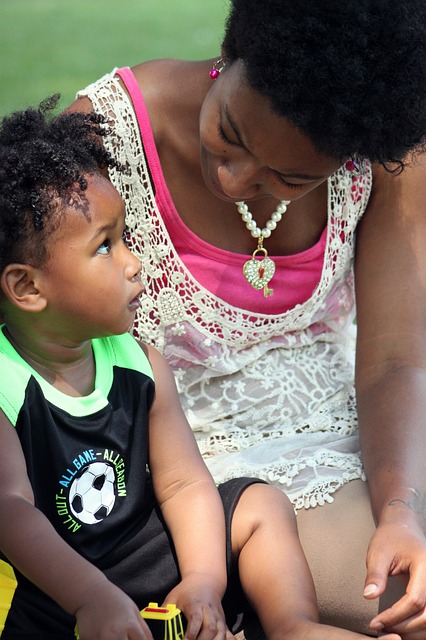Multiple Sclerosis in Children - Part 3
You've reached Multiple Sclerosis in Children - Part 3. To read Part 1 and Part 2 first click the links.
Will my friends understand?
As a teenager with MS, you may wonder if you should tell your friends that you have it. How will they be able to understand something you hardly understand yourself? They may not want to be around you if you tell them that you have a “disease”. They may wonder if they can "catch" it if they touch you or sit too close to you.
And if you don't tell them, they'll wonder why you sometimes stumble or why you can't play sports. They will most like wonder why you are so tired all the time. Or why you miss so many days of school. Things that kids do, like going out to a movie or on a date can be even more challenging when have MS to deal with.
I know that the teenage years are not the easiest to live through even when you're healthy. (Trust me, even though it has been a while, I've been there). Throwing the uncertainties of multiple sclerosis on top of it all, only complicates things even more. Especially if it comes at a time when everything seems to be turned upside down anyway.
Through your child's eyes
You, as a parent, may notice your child, or teen is having trouble dealing with social issues, or having academic problems. Physically they may not be able to keep up with their siblings or counterparts. Because of this they may find it difficult to make friends. They may even have problems within the family.
And once you both find out that your child has multiple sclerosis, your child's self-image may be affected by the diagnosis of MS. How can you help them? Depending on their age, you will need to tailor your responses so that they can understand.
- Talk to your child about what they are feeling.
- Help them figure out ways to address each area they're having problems in.
- Suggest tools and strategies that can help them manage the challenges they are facing.
If there are other family members with multiple sclerosis, they may be able to share coping strategies they've learned that may also be helpful for your child. Find and read books with your child about MS geared to your child or teens age. These may be difficult to find, however, whenever you run across one, grab it up to see if it may be of interest to your child.
You may even be able to find a support group for parents and their children with MS. One of Cir's friends on-line is a couple whose daughter has MS. They started a support group because of this. It helped her see that she was not the only young person to have to deal with something like this.
If you still feel your child or teen is not coping or improving, a trained professional may be the answer. After you've done as much as you can to help and the problem doesn't seem to get any better, don't be afraid to seek help. Not only for your child, but also for yourself.
You may feel guilty thinking that you could have done something to cause this or maybe even something to prevent it. I don't have MS; however, I do have other health conditions that my mother feels that she could have been responsible for. I think every parent feels this in some way when their child is diagnosed with a devastating condition like multiple sclerosis.
Teens, the internet, and MS
As an older child or teen with MS, you will no doubt find yourself on-line, talking to others your age who are dealing with multiple sclerosis. The saying, "misery loves company", is all too true, especially when you are the only one you know of in your school or friend group that has MS.
Sharing and finding out how others your age cope with MS in their everyday life, can be really helpful when learning how to deal with your particular symptoms and challenges. It would be helpful to talk to each other about what kinds of strategies you've learned that help you manage your symptoms.
The young people you talk to more than likely can't solve all of your problems, of course. But it doesn't hurt to have someone to bounce things off of once in a while. If nothing more than to have a place to go, where people can understand what you're going through. That's always a good thing.
Safety first
The internet can be a source of information as well as support. But safety should be the first priority when searching the internet. Your parents can help you find appropriate internet resources. And now a days, the internet can be a dangerous place for teens.
If you're a teenager and find a chat room or message board for teens with MS, see if they encourage you to invite your parents or family members. That's always a good indicator of whether the site is for real.
Never give out personal information, such as your last name, mailing address, and phone number. This may be hard to do, however, it's imperative if you want to be safe when navigating the internet.
Parents, the internet, and MS
As a parent of a child with MS, the internet is also a good place to find information and support for yourself. Just knowing you aren't the only parent going through this alone, is comforting in itself.
Knowing how other parents talk to their children about multiple sclerosis can help you in deciding when and how to talk to your child. Also, knowing what to expect (even though MS is different for each person), can limit the number of surprises.
Understanding Multiple sclerosis in children
Multiple sclerosis in children is so hard for me to imagine. Although it is still a rare occurrence, it is still a fact. I just wish that the cure is so close, that multiple sclerosis in children will be ended before many more of our precious little ones are affected.
No one, especially children, should have to live with MS. And especially for so much of their lives. Multiple sclerosis in children of any age; from toddlers to teens, it just should not be.
Does your child have MS? Would you like to share your story about multiple sclerosis in children on a personal level? Help others by sharing how you and your family deal with MS on a daily basis. What kinds of strategies and coping mechanisms have you and your child used to deal with multiple sclerosis?
If you are willing to share with our visitors, please contact us and we will reactivate the form so that you can add your story. If you would just like to add a comment, use the comment form below.
Would You Like to Leave a Comment About This Page?
Do you have a comment you'd like to make? Do you LIKE this page - or NOT like it? Do you Agree - or Disagree? Is it True - or is it False? Well tell us about it! We promise - we'll listen!
Add your comment below.
Are you interested in finding more about pediatric multiple sclerosis? Well, Cleveland Clinic has an article you might find helpful. (Link will open in a new window).
Dear Friends,
"Life in Spite of MS is a participant in the Amazon Services LLC Associates Program, an affiliate advertising program designed to provide a means for sites to earn advertising fees by advertising and linking to Amazon.com. We're also part of the Ebay Partner Network, another affiliate program."
We'd also like you to know it doesn't cost one cent more when you click through the links here on our blog. Not one single penny. And we will make a little extra cash when you do click through. We'll be ever so appreciative. You also have our word that we'll only link to things that we would use ourselves, (or wish we could have or use).
Sincerely,
Cir & Akrista
You are reading original content written by Akrista or Cir L'Bert of Life in Spite of MS. If you enjoyed reading this blog, please consider following us on Facebook, Twitter, Pinterest, and Instagram. See you there!
Privacy Policy ~ Advertising Policy ~ Disclaimer ~ Contact Us ~ About Us





New! Comments
Have your say about what you just read! Leave me a comment in the box below.